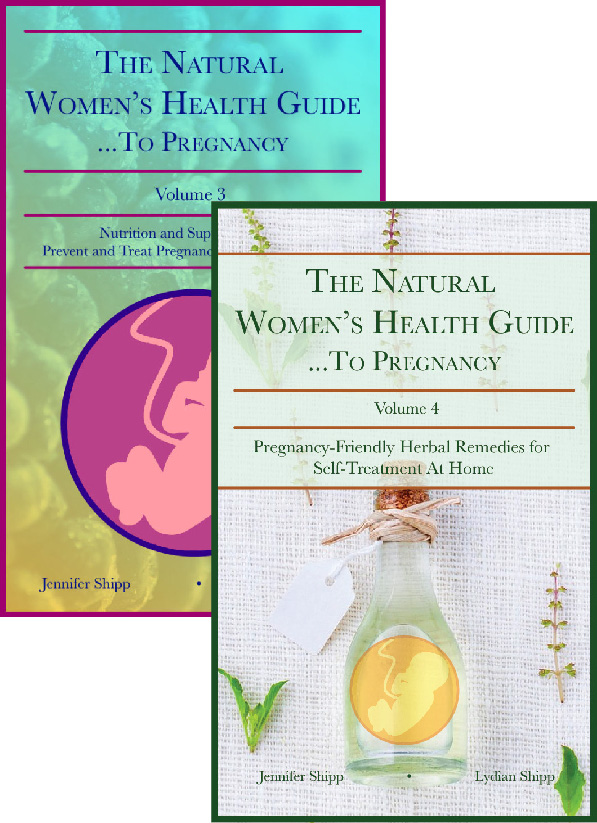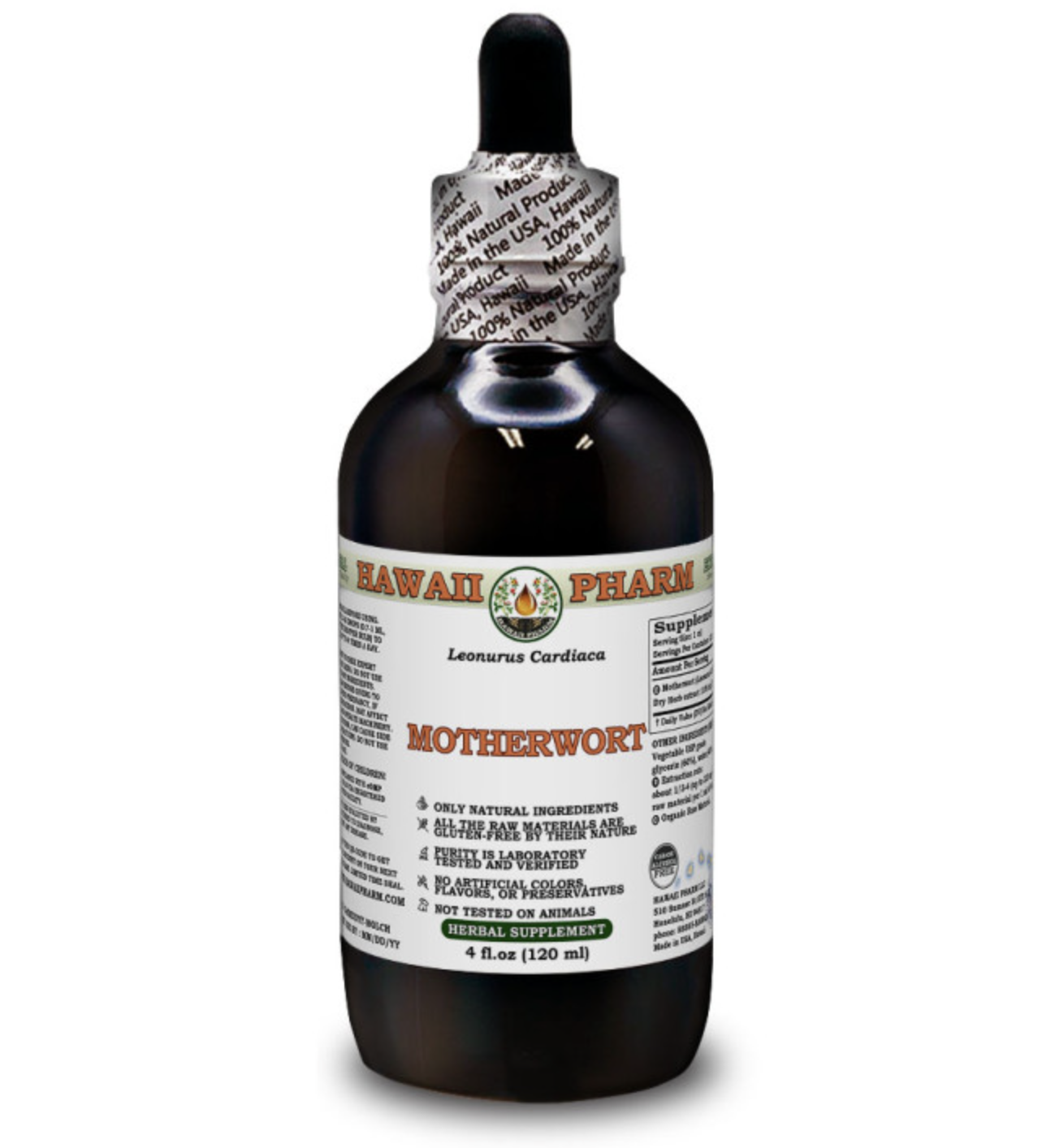 Motherwort (Leonurus cardiaca): Herbal Remedy for Perinatal Depression / Anxiety (and more...)
Motherwort (Leonurus cardiaca): Herbal Remedy for Perinatal Depression / Anxiety (and more...)
Motherwort has a long history of use as an antidepressant and anxiolytic herbal medicine, and was commonly employed by the ancient Greeks as a treatment for anxiety during pregnancy. The herb has been scientifically shown to be highly effective as an anxiety and depression treatment, and many individuals experience almost immediate positive changes to their mood and emotional well-being after starting treatment with Leonurus cardiaca. For expectant mothers, motherwort has unique spiritual benefits as well as physical benefits, and has long been thought to help heal and support the mother-child relationship.
There’s a lot of debate around whether or not motherwort is safe during pregnancy. However, many sources that say that motherwort is safe for occasional use during pregnancy indicate that the herb shouldn’t be used during the first trimester due to its uterine stimulant and emmenagogue-type effects (because of these properties, it may pose a risk of miscarriage during the first trimester in particular). But don’t let this scare you off entirely: although motherwort can stimulate uterine contractions and bring on missed or late periods, it has also been known to soothe false labor pains, which suggests that the herb likely has a kind of dual-sided effect in the female reproductive organs.
Herbs have a wisdom of their own, and motherwort has been used for thousands of years as an herb for women’s health during all stages of a woman’s life, including during pregnancy. Many herbs have opposite effects based on the exact state of the body. For example, Lobelia inflata can be used in cases of threatened miscarriage to either prevent miscarriage from occurring, or to speed up and ease the process of miscarriage. The main factor in whether or not lobelia prevents or encourages the miscarriage has to do with the fetus itself; if the fetus is healthy, lobelia prevents miscarriage, while if the fetus is unhealthy, lobelia facilitates miscarriage. It’s possible that motherwort has a similar set of opposite effects in women; perhaps during normal times, the herb stimulates the uterus and provokes menstruation, but if a woman is pregnant, it may even support the pregnancy. (NOTE: I’m not stating a fact here, this is merely a speculation based on the current information that I’ve been able to find on the use of Leonurus cardiaca during pregnancy).
Consider this: motherwort is both a uterine stimulant as well as a noted sedative and antispasmodic. Many sedative and/or antispasmodic herbs, like cramp bark, are important remedies for treating threatened miscarriage, preterm birth, uterine irritability, uterine cramping, and more during pregnancy. Some studies indicate that motherwort is also a uterine tonifier; note that red raspberry leaf, an herb that is used a lot during pregnancy with excellent results, is also considered to be a uterine tonifier (black haw is another a uterine tonifier that is regularly used in treatments for threatened miscarriage).
Also, it’s worth noting that the German Commission E (which bears similarities to the United States FDA) has indicated that there are no known risks to using motherwort during pregnancy. Indeed, there is no research indicating that motherwort actually poses any risk of miscarriage or preterm labor, and one source even acknowledges that these risks are truly only “theoretical”.
Motherwort Injections to Prevent Postpartum Hemorrhage
In women who have had a cesarean section, multiple trial studies indicate that injections of motherwort are able to help reduce blood loss during the first 2 hours after surgery. Some trials included oxytocin injections in combination with the motherwort injections, while others only used motherwort injections. In either case, the risk of postpartum hemorrhage after C-section was seen to be significantly reduced when one or both of these medicines were used. Other studies show that motherwort injections can also be used to prevent post abortion hemorrhage.The results of these studies are likely due to motherwort’s ability to enhance blood viscosity. The herb decreases blood fibrinogen content, reduces platelet aggregation, and discourages erythrocyte malformation. The lectins from motherwort seeds in particular (usually the leaves or flowers are used) significantly affect red blood cell agglutination.
How to Take Motherwort During Pregnancy
If you choose to take motherwort during pregnancy, consider some of the administration methods and dosing guidelines below:- Infusions of motherwort are specifically considered safe during pregnancy, since warm preparations of the herb tend to exert an antispasmodic effect on the uterus. A hot infusion can be prepared using 1 ounce of dried Leonurus cardiaca with 1 pint of boiling water, which should then be allowed to steep for 30 minutes. Strain before drinking. This infusion is taken up to 3 times daily outside of pregnancy. Start with the lowest dose possible and then assess your emotional state before increasing the dose beyond what’s necessary.
- When given in capsulized form outside of pregnancy, the dried herb of motherwort can be given at a maximum dose of 2-4 grams up to 3 times per day. Women who are pregnant should, of course, use a significantly lower dose.
- The liquid extract of motherwort is given outside of pregnancy at a dose of 2-4 mL, up to 3 times per day. The tincture can be given at a dose of 2-6 mL, up to 3 times daily.
- The book, “The Herbalist’s Guide to Pregnancy, Childbirth, and Beyond” recommends a daily dose of 2-8 grams of the herb in the form of an infusion OR 2-18ml of a tincture.
Other Uses of Motherwort (Leonurus cardiaca)
As mentioned above, motherwort has antispasmodic and sedative properties, as well as stimulant properties in certain circumstances. It is also considered to be a nervine, meaning that it can regulate and relax the nervous systems, and a diaphoretic, meaning that it can reduce fevers by encouraging sweating.The herb is a cardiovascular tonic that supports circulation and blood flow throughout the body, and also helps to stimulate the appetite and support healthy digestion (motherwort is a bitter and a member of the Lamiaceae / Mint Family). Motherwort also has some actions in the liver, and is regarded as a hepatic herb. Notably, motherwort also encourages the release of oxytocin, which may be why it’s so effective in the treatment of mood problems as well as why it can be valuable during childbirth in particular.
Motherwort has been used to treat the following women’s health issues:
- Uterine cramping or pain
- Menstrual disorders
- Dysmenorrhea (painful menstruation)
- Amenorrhea (absence of menstruation)
- Oligomenorrhea (infrequent menstruation)
- Hypomenorrhea / Menorrhagia (excessively light / heavy menstruation)
- Premenstrual syndrome / PMS
- Uterine irritability
- Labor pains during childbirth
- Menopause symptoms (motherwort has been known to help ease the transition into menopause)
- False labor / Prodromal labor
- Stalled or erratic labor
- Pregnancy-related anxiety, depression, fear, or other mood problems
- Afterbirth pains
- Vaginal atrophy
- Postpartum depression / anxiety
- Ovulation pain
- Menstrual headaches
- Prevents uterine infection and supports the process of uterine drainage in the first 5-7 days following childbirth
- Helps expel the afterbirth
- Low breast milk production (motherwort is a galactagogue)
- Uterine fibroids
- Fibrocystic breasts
- Chronic pelvic pain
Motherwort also has medicinal applications outside of women’s health, and has been used therapeutically to treat:
- High blood pressure / Hypertension
- Angina (especially on exertion)
- Racing heartbeat / Tachycardia
- Heart palpitations
- Hypochromic anemia / Chlorosis / Green sickness
- Nervousness
- Neuralgia
- Rheumatic conditions
- Restlessness
- Epilepsy
- Cardiac debility
- Thyroid disorders (in German, motherwort is an approved adjuvant medicine used in the treatment of thyroid conditions)
- Coronary heart disease
- Atherosclerosis (motherwort works well with hawthorn for this condition)
- Heart arrhythmias
- Anxiety / Depression
- Emotional problems of the heart
- Spastic colic
- Severe debility due to illness
- Anemia
- Adrenal fatigue
- Eating disorders
- Digestive issues, including recurrent constipation, gas/flatulence, bloating, indigestion, abdominal pain, etc.
- High cholesterol / Hypercholesterolemia
- Vertigo

"The Natural Women's Health Guide... to Pregnancy - BUY HERE!"
 Click here to subscribe to the Living Database!
Click here to subscribe to the Living Database!
Related Posts:
Resources:

 Our Amazon links to powerful cures like Hawaii Pharm herbal tinctures often disappear mysteriously after we publish.
Support our outside vendors by purchasing Hawaii Pharm's Motherwort tincture here.
Our Amazon links to powerful cures like Hawaii Pharm herbal tinctures often disappear mysteriously after we publish.
Support our outside vendors by purchasing Hawaii Pharm's Motherwort tincture here.  The Conditions of Pregnancy Living Database, BETA Release - NOW AVAILABLE! Click here to learn more...
The Conditions of Pregnancy Living Database, BETA Release - NOW AVAILABLE! Click here to learn more... Secrets of the Tribe Motherwort 120 Capsules, Made with Vegetable Capsules and USDA Organic Motherwort Leonurus Cardiaca Cardiovascular System Health/Women's Reproductive Health (120 Capsules)
Secrets of the Tribe Motherwort 120 Capsules, Made with Vegetable Capsules and USDA Organic Motherwort Leonurus Cardiaca Cardiovascular System Health/Women's Reproductive Health (120 Capsules)
















